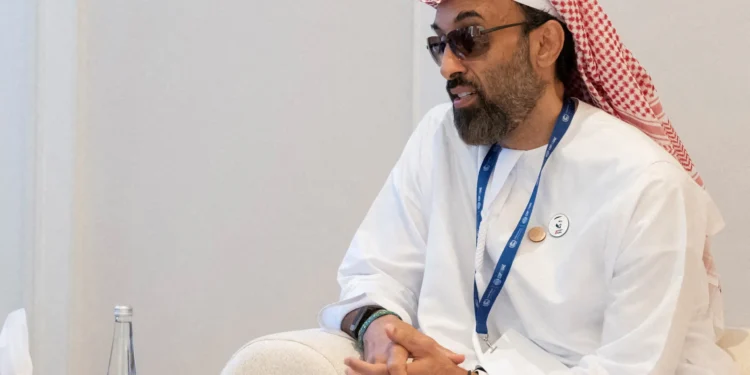Sheikh Tahnoon bin Zayed Al Nahyan, the UAE’s national security adviser and brother of the country’s president, will visit Washington to convince the US government to ease restrictions on semiconductor exports. His trip comes as the UAE ramps up investments in artificial intelligence (AI) and data centers, but faces growing challenges due to tightened US regulations on advanced chips.
According to Bloomberg, Sheikh Tahnoon plans to meet with key US officials, including the secretaries of commerce, treasury, and national security, to push for better access to American technology and discuss potential Emirati investments in the US. Reports suggest the meeting was requested by former President Donald Trump himself, though it remains unclear if he will participate directly.
UAE’s Growing Demand for Advanced Microchips
The UAE has been actively securing high-performance semiconductors from companies like Nvidia, seeking to advance its AI ambitions. However, global supply shortages and geopolitical tensions have made procurement very difficult.
Since 2023, the US has restricted exports of advanced chips to the UAE, limiting the country’s access to AI technology. This year, a new set of regulations introduced in January and set to take effect in May 2025 will further cap the total computing power available to most countries, including the UAE.
Under these new chip restrictions, the UAE has been placed in a “second-tier” designation, which allows a maximum of 50,000 advanced processors unless the country meets specific US security commitments.
US Concerns Over UAE-China Relations
A key factor in the US government’s reluctance to grant the UAE greater access to advanced chips is its growing partnership with China. The Biden administration has been enforcing strict semiconductor export controls, particularly against countries it believes could redirect technology to Beijing.
Despite this, the UAE has been working closely with American firms to maintain its tech ambitions. Microsoft, which holds a strategic stake in the UAE’s national AI company, G42, has been a key partner in ensuring access to high-end computing power. G42 itself is controlled by Sheikh Tahnoon, making his lobbying efforts even more critical in navigating US regulatory barriers.
🔗 Related Reading: Trump Doubles Down on Biden’s Chip Restrictions Against China
Balancing AI Growth and US Relations
The UAE has publicly committed to becoming a global AI leader, making semiconductor access a top priority for its economic and technological future. However, as Washington tightens control over AI chip exports, the UAE finds itself at a crossroads, balancing its AI ambitions, strengthening ties with US tech firms, and managing geopolitical sensitivities.
Sheikh Tahnoon’s negotiations in Washington could determine whether the UAE gains more flexibility in securing advanced microchips or faces further challenges in its AI-driven economic transformation.














